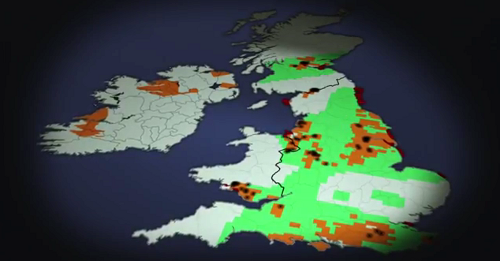Why the Green Party must reach out to all corners of Britain

At the moment, the majority of Green councillors on principal authorities, as well as the only Green MP, Caroline Lucas, represent areas that either have a large student and academic population or are well known for being middle-class bohemian districts. The fact our two largest Green groups in England and Wales are in Brighton and Bristol highlights this. However, it gives the Green Party an overly middle-class, left-wing intellectual ‘niche’ look to many voters and this limits its national potential. This all needs to change if the Green Party is going to have a chance of becoming a party of government that will get a mandate to implement green policies and fundamental democratic and constitutional change in Britain.
In all general elections, there are constituencies where the result in the seat is almost always reflected in the national election result; such constituencies include Northampton North, Warrington South, Lincoln, Watford, Kingswood, Nuneaton, Calder Valley, Pendle, Keighley, and Amber Valley. These constituencies are large self-contained towns or suburbs which have relatively average demographics and income levels and in our current political system contain the types of voters which parties need to win over a majority of if they are to form the next government. They also contain large numbers of undecided voters who politicians have to work hard to win over and who are concerned with major issues like the economy, the NHS, welfare, immigration, and justice. In the 10 aforementioned bellwether constituencies, the Green Party did not save any deposits, but it is clear that the high potential for change in these seats means that the Green Party needs to win over traditional swing voters and voters who currently feel alienated in modern British politics such as young voters, disabled voters, low-waged voters, and voters in towns whose traditional socio-economic base has been lost or has declined significantly in addition to its current base of young progressive voters. Many of these disaffected voters have in recent years been over by UKIP’s messages of false hope and fear; we must be the ones to reach out and give them fundamental change to our system and real hope for the future. As our work in such places as Solihull and Rochford proves, we can win these voters over.
We also need to link green politics and values with everyday concerns of the British public. Recycling, reducing consumption, and reusing and repairing what we have when we can is not only good for conserving our planet’s finite resources, but it also saves money and allows things to be passed on to future generations within a family. Reducing the amount of meat we eat and increasing our intake of fresh fruit & vegetables is not only good for reducing greenhouse gas emissions and karma, but it also allows us to lead healthier lives and help us live longer. Renationalising our railways and utilities will save everyone money and achieve better reliability and punctuality in the rail network as well as making much-needed improvements to our infrastructure.
Green politics can work for everyone, regardless of where they are or who they are, and I believe the Green Party can be the one to unite the people amongst all the divisions and turmoil we face at the moment.




It’s a pity Caroline is standing with a London-based Green – why not step outside the comfort zone for a change? It really doesn’t help the Green Party profile, just confirms it. Depressing.
Here in Yorkshire we have councillors in Huddersfield Newsome ward – mixed population, significant BAME, white working class. We have councillors in Farnley & Wortley ward in Leeds, 32nd most winnable of the 33 wards in Leeds based on MOSAIC data – the one that includes all those niche criteria you refer to. You refer to Keighley – town outside Bradford,significant BAME population, but it is not a constituency – that is Keighley and Ilkley – Ilkley, fairly solid Tory, but some of your niche criteria,and we have a parish councillor there. We have councillors in England & Wales, but there is no simple generalisation about the areas they represent. Yes we have tpo reach out, but we need a solid data base to work from, not a group of generalisations.